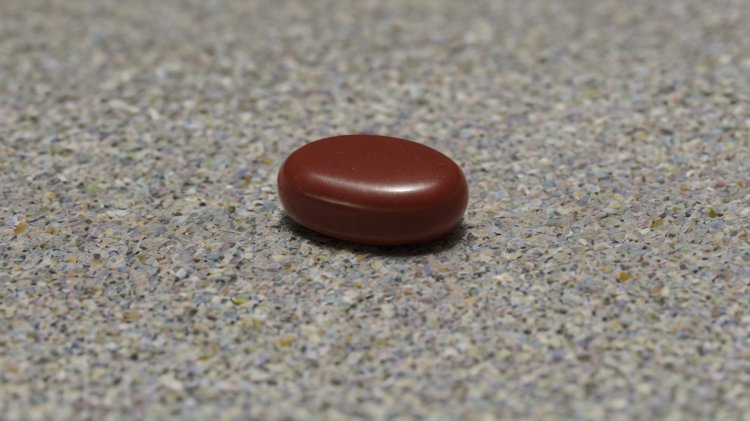Doxycycline Interactions: Alcohol, Medications, Supplements, and Safety Tips
Learn about doxycycline interactions with alcohol, medications, and supplements. Discover how to avoid side effects, ensure safe usage, and enhance treatment effectiveness.

A Comprehensive Guide to Doxycycline Interactions
Doxycycline, a versatile antibiotic, treats bacterial infections, severe acne, and prevents malaria. However, like all medications, it comes with potential interactions. Understanding these interactions and adhering to safety guidelines can maximize the drug’s effectiveness and minimize risks.
Medications That Interact with Doxycycline
Doxycycline can interact with various drugs, potentially altering its effectiveness or causing side effects. Here are key medications to watch out for:
-
Antacids:
- Examples: Aluminum hydroxide, calcium carbonate.
- Effect: Reduces doxycycline absorption, making it less effective.
- Solution: Take antacids 2–3 hours apart from doxycycline.
-
Oral Birth Control Pills:
- Examples: Ethinyl estradiol combinations.
- Effect: May decrease contraceptive effectiveness, increasing pregnancy risk.
- Solution: Use a backup contraception method during treatment.
-
Retinoids:
- Examples: Isotretinoin, acitretin.
- Effect: Raises risk of intracranial hypertension (increased pressure inside the skull).
- Solution: Avoid combining retinoids and doxycycline.
-
Warfarin:
- Effect: Increases bleeding risk when taken with doxycycline.
- Solution: Regular blood monitoring and dose adjustments may be needed.
-
Penicillin Antibiotics:
- Examples: Amoxicillin, penicillin G.
- Effect: Reduces the effectiveness of penicillin antibiotics.
When to Avoid Doxycycline
Doxycycline may not be suitable if you have:
- Allergies: Previous allergic reactions to tetracycline antibiotics.
- Severe Liver Issues: Doxycycline can worsen liver conditions.
- Pregnancy: It may harm fetal development.
- Children Under 8: Can cause permanent tooth discoloration.
Doxycycline and Alcohol
Though doxycycline doesn’t directly interact with alcohol, excessive alcohol consumption can:
- Reduce Effectiveness: Heavy drinking diminishes the antibiotic’s potency.
- Harm the Liver: Both alcohol and doxycycline can strain the liver.
Recommendation: Avoid alcohol during treatment to support recovery and reduce side effects like nausea.
Other Interactions
Supplements
Certain vitamins and minerals, including calcium, iron, magnesium, and zinc, can reduce doxycycline’s effectiveness.
- Solution: Take supplements at least 2 hours before or after doxycycline.
Food
- Avoid dairy products within 2 hours of taking doxycycline to prevent absorption issues.
Live Vaccines
- Avoid live vaccines like BCG or cholera during treatment, as doxycycline may reduce vaccine efficacy.
Common Health Conditions and Doxycycline
-
Liver and Kidney Issues:
- Regular monitoring is essential to ensure safe use.
-
Lupus:
- Doxycycline can exacerbate lupus symptoms, leading to flare-ups.
-
Sun Sensitivity:
- Increases skin sensitivity to sunlight and UV rays.
- Solution: Apply sunscreen and wear protective clothing.
Tips to Prevent Interactions
- Share Your Medical History: Inform your doctor about all medications, supplements, and health conditions.
- Follow Prescribed Guidelines: Adhere to dosage and timing instructions.
- Read Labels: Check medication guides for interaction warnings.
- Consult Your Doctor: Before starting or stopping any medication during doxycycline treatment.
FAQs About Doxycycline
1. Can I take ibuprofen with doxycycline?
Yes, doxycycline has no known interaction with ibuprofen. Always consult your doctor for confirmation.
2. Does doxycycline affect vitamin D levels?
No significant interaction is known between doxycycline and vitamin D.
3. Is it safe to use dairy products while on doxycycline?
Dairy products can reduce doxycycline’s effectiveness. Avoid them within 2 hours of your dose.
4. Can I take supplements while on doxycycline?
Yes, but ensure a 2-hour gap between supplements and doxycycline to avoid absorption issues.
5. How do I know if I’m experiencing a serious interaction?
Symptoms like severe headache, vision problems, or prolonged nausea may indicate an interaction. Seek immediate medical attention.
Conclusion
Doxycycline is a powerful antibiotic, but managing its interactions is crucial for safe and effective treatment. By following prescribed guidelines, avoiding known interactions, and maintaining open communication with your healthcare provider, you can navigate your treatment journey confidently.
For any concerns about doxycycline or its interactions, consult your doctor or pharmacist. Proper understanding and precautions ensure the best outcomes for your health










